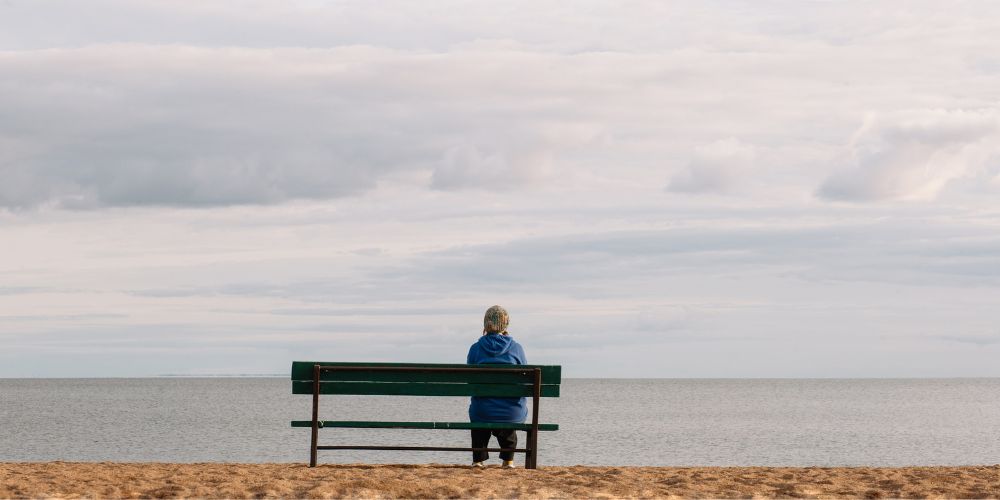A study has revealed that loneliness and social isolation among older New Zealanders has reached epidemic proportions, prompting calls for urgent government intervention.
Health advocates are urging the establishment of a dedicated Minister for Loneliness to coordinate national efforts to address this growing health and social crisis, mirroring successful models implemented in countries such as the United Kingdom and Japan.
The Breaking Barriers report, commissioned by Age Concern Auckland, surveyed older adults across Auckland and the Bay of Plenty to better understand the root causes and consequences of social disconnection among people aged 65 and older.
The findings paint a concerning picture: 59% of respondents reported recent feelings of loneliness or social isolation, with nearly one-third (30%) stating they experienced these feelings frequently or constantly.
According to the study’s authors, loneliness among older people is not simply an emotional issue—it is a public health concern. The research reveals that social isolation is closely tied to a range of negative health outcomes, comparable in severity to smoking, alcoholism, and obesity. Kevin Lamb, Chief Executive of Age Concern Auckland, says the impact of chronic loneliness is far-reaching and damaging.
“The level of loneliness and social isolation among older people across the country is severe and has a significant detrimental impact on the lives of many vulnerable New Zealanders,” Lamb says. “This impact is of a similar negative level as smoking, alcoholism, and obesity—not only on individuals but also on our communities and health system.”
The report identifies a complex web of contributing factors. Financial insecurity plays a key role, particularly for those coping with the rising cost of living on fixed or limited retirement incomes. Health-related challenges also contribute significantly.
Long wait times for elective procedures, the rising cost of private health insurance, and the stress of navigating health services all impact older people’s ability to remain socially engaged.
Housing issues also emerged as a major driver of isolation. Many older New Zealanders, particularly those living in social housing, face unsuitable or substandard living conditions.
The study found that 70% of social housing residents reported loneliness, the highest rate among all accommodation types. Limited mobility, inadequate accessibility, and poor housing quality frequently leave older adults feeling trapped in environments ill-suited to their changing needs.

Globalisation and shifting family structures have further compounded the issue. The study notes that many older adults, especially in Auckland, have become geographically and emotionally isolated from loved ones due to adult children relocating overseas.
Alarmingly, 44% of Auckland’s older population are migrants who moved to New Zealand to be near family, only to experience renewed isolation as their children pursue opportunities elsewhere.
Technology, often proposed as a solution to loneliness, may not offer the protection it promises. The study found that 75% of older adults who use social media still experience loneliness.
In fact, those who rated themselves as “very proficient” with smartphones were more likely to feel isolated than those without access. Researchers suggest that digital interaction may lack the emotional nourishment of face-to-face connection and may even amplify feelings of exclusion.
Age Concern Auckland is now calling for the creation of a Ministerial Lead for Loneliness in New Zealand. This role would coordinate national policy, support services, and awareness initiatives aimed at reducing social isolation.
“This is a hidden epidemic, and it requires a visible, co-ordinated response,” Kevin says.
“A Minister for Loneliness would be charged with shaping policies, funding mental health services tailored to older adults, and working across government and community sectors to develop inclusive, age-friendly environments.”
International examples support this approach. In the UK and Japan, dedicated loneliness ministries have helped implement nationwide strategies, raise public awareness, and support at-risk populations.
A similar role in New Zealand could oversee targeted initiatives for rural communities, Māori elders, and migrant populations—groups who, according to the report, are at heightened risk of isolation.
The report also calls for increased funding for mental health support tailored to older adults, expansion of community-based initiatives such as social clubs and volunteer programmes, and stronger anti-ageism campaigns to combat negative stereotypes and promote intergenerational connection.
In rural areas, the challenge is even greater. Over one-third (34%) of Māori kaumatua live in rural regions, compared to just 20% of the general rural population. With fewer services and a higher older-age dependency ratio in these areas (35 per 100 compared to 23 per 100 in urban settings), Māori elders face serious disadvantages in accessing support.
The Breaking Barriers report serves as a wake-up call to government, health providers, and communities alike.
With an ageing population and widening social gaps, the time for a coordinated, compassionate response is now. Ensuring that older New Zealanders feel valued, connected, and supported is not only a moral imperative—it is essential to the health and wellbeing of our society.





